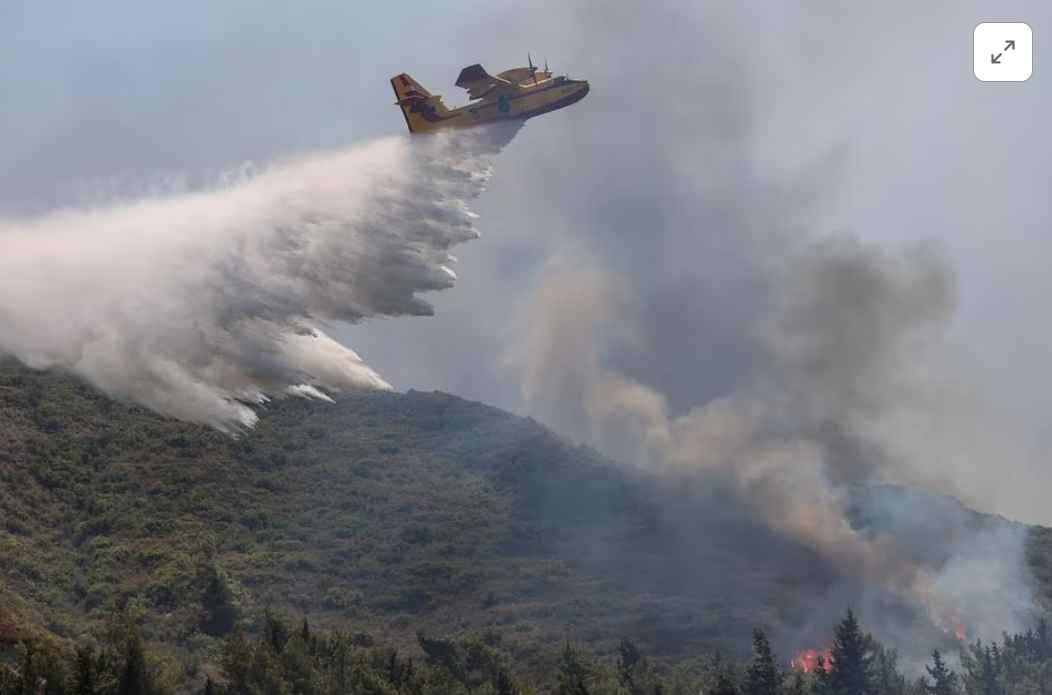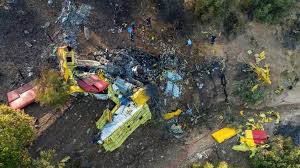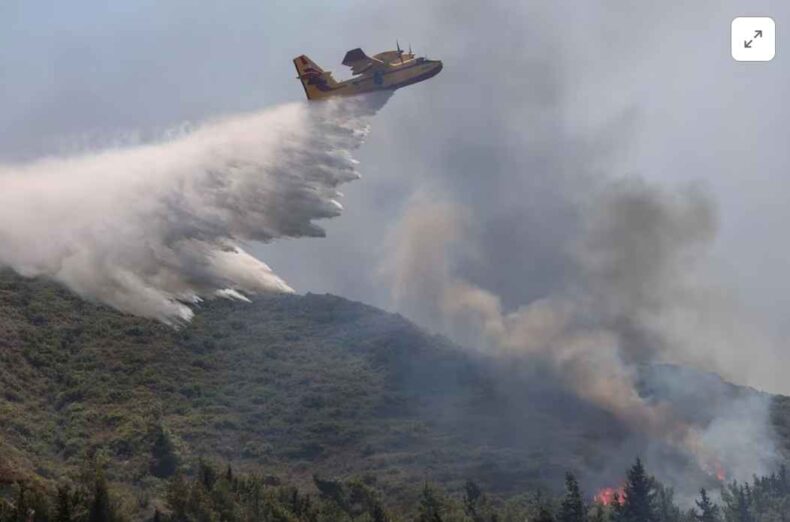On 25th July, three firefighters on the Greek islands became the first known fatalities. Raging wildfires have been causing destruction in Greece for a week. Prime Minster Mitsotakis Kyriakos has warned citizens of more difficult days ahead. The fires have destroyed homes and forced tourists to evacuate.

Latest updates:
A Canadair CL-215 plane crashed on the island of Evia, killing two firefighting pilots. The air force said they were aged 34 and 27. The plane dropped water over a fire before crashing into a hillside, as shown in a TV footage.
ERT, a state broadcaster, reported that a 41-year-old stockbreeder’s body was found buried in a shack. He had been missing since Sunday and was discovered burned in a difficult-to-reach place in Evia.
Efforts to put out the wildfires have been going on by hundreds of firefighters, with the help of Turkish and Slovakian forces. Emergency air evacuations of tourists have been going on from the islands of Rhodes, Corfu, and Evia since Wednesday. By Tuesday, some 3,000 vacationers had flown back home, and tour companies canceled forthcoming trips and canceled flights to Rhodes until Friday.
The Prime Minister told his ministers on Tuesday that the next couple of days would be tough, but things are likely to improve after Thursday. He said that there is no miraculous defensive mechanism against what the entire planet is facing, particularly the Mediterranean, which is a hotspot for climate change. Earlier, he had equated the event with war, promising to rebuild what they lost, and compensate those who were hurt.
Greece wildfires: Climate change, the real killer
Some areas of Greece are expected to exceed a scorching temperature of 44 Celsius or 111 Fahrenheit.
According to a scientific analysis released on Tuesday, the unprecedented heatwaves that have swept across North America, southern Europe, and China this month were “absolutely overwhelming(ly)” caused by human-induced climate change. Several parts of the world have therefore seen forest fires, droughts, and heat strokes this year. Izidine Pinto of the Royal Netherlands Meteorological Institute, one of the study’s authors, said this during a briefing with journalists: “European and North American temperatures would have been practically impossible without the effects of climate change.” “In China, it was around 50 times more likely to occur than in the past”, he said.

The European heatwave was 2.5 degrees Celsius (4.5 degrees Fahrenheit) hotter than it would have been if not for the rising greenhouse gas concentrations, according to the World Weather Attribution team. Additionally, they increased the heatwave in China by 1 degree C and the one in North America by 2 degrees C.
El Nino undoubtedly played a role in some locations’ increased heat, but rising greenhouse gas levels were the main culprit, according to scientists. Heatwaves will become more frequent if emissions are not reduced.
They calculated that if average global temperatures reach 2C over pre-industrial levels, protracted spells of intense heat are expected to occur every two to five years. According to current estimates, the average temperature has increased by more than 1.1C.
Prime Minster Mitsotkis said two days ago, “The climate crisis is already here; it will manifest itself everywhere in the Mediterranean with greater disasters.”
As the real-time effects of the climate crisis become fatally apparent, fear, anxiety, and a sense of doom linger across the world.













